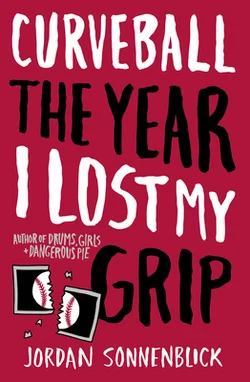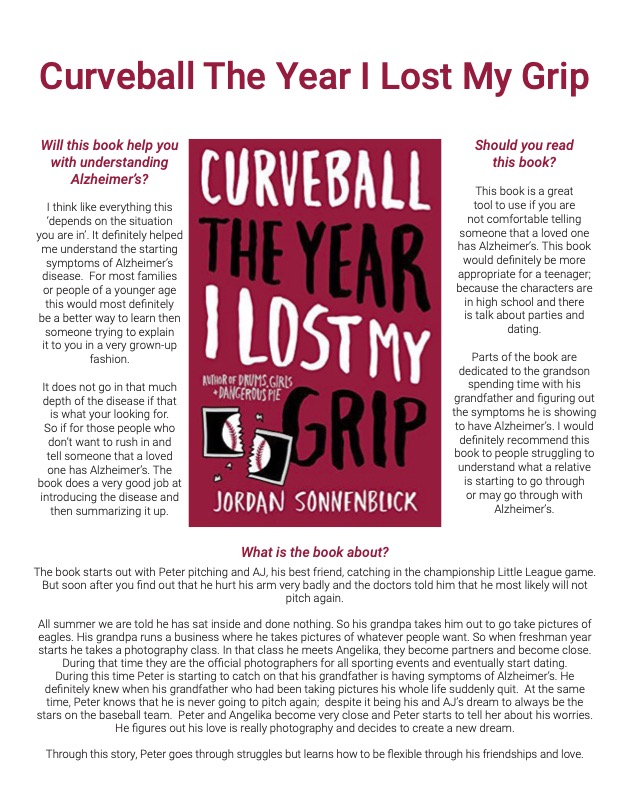Curveball The Year I Lost My Grip: Book Review
Guest Blogger: Owen is a 13-year-old who loves playing shortstop.
Alzheimer's disease and other progressive neurodegenerative diseases that impair cognitive ability and affect memory can have a significant long-term impact on a family. As part of Our Commitment to create spaces for multiple generations to come together, we asked a young teen, Owen, to review the book Curveball: The Year I Lost My Grip by Jordan Sonnenblick. Owen offers his authentic perspective on Alzheimer’s disease by reviewing this book.
Traditions understand that each senior in our care has a unique life story, which is very important to how we care for him or her. The Varietas® Memory Care Program relies on what we learn about your loved one to comfort and connect with them in a warm and nurturing environment. Learn more here.
Curveball The Year I Lost My Grip: Book Review

What’s The Book About?
The book starts out with Peter pitching and AJ, his best friend, catching up in the championship Little League game. But soon after, you find out that he hurt his arm very badly, and the doctors tell him that he will likely not pitch again.
All summer we are told he has sat inside and done nothing. So, his grandpa takes him out to take pictures of eagles. His grandpa runs a business where he takes pictures of whatever people want. So, when freshman year starts, he takes a photography class. In that class, he meets Angelika; they become partners and become close. During that time, they were the official photographers for all sporting events and eventually started dating.
During this time, Peter is starting to catch on that his grandfather is having symptoms of Alzheimer's. He knew when his grandfather, who had been taking pictures his whole life, suddenly quit. At the same time, Peter knows that he will never pitch again; despite it being his and AJ's dream always to be the stars on the baseball team. Peter and Angelika become very close, and Peter tells her about his worries. He discovers his love of photography and creates a new dream.
Through this story, Peter struggles but learns to be flexible through his friendships and love.
Will This Book Help You With Understanding Alzheimer's?
Like everything, this 'depends on the situation you are in.' It helped me understand the starting symptoms of Alzheimer's disease. For most families or people of a younger age, this would be a better way to learn than someone trying to explain it to you in a very grown-up fashion.
Side note: it does not go into that much depth of the disease if that is what you're looking for. So for those people who don't want to rush in and tell someone that a loved one has Alzheimer's, the book does an excellent job of introducing the disease and then summarizing it.
Should You Read This Book?
This book is a great tool to use if you are not comfortable telling someone that a loved one has Alzheimer's. While much of the story is based on baseball and photography, there are many relatable moments throughout the book because it is realistic fiction. This book would be more appropriate for a teenager because the characters are in high school, and there is talk about parties and dating.
Parts of the book are dedicated to the grandson spending time with his grandfather and figuring out the symptoms he is showing to have Alzheimer's. I would recommend this book to people struggling to understand what a relative is starting to go through or may go through with Alzheimer's.


